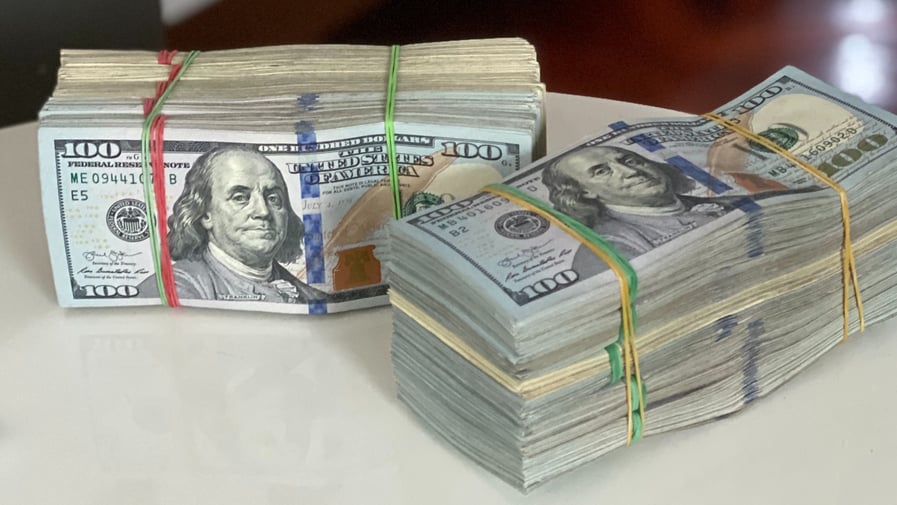This month’s Red Flag Bulletin includes the following stories:
- UK’s Serious Fraud Office investigates Glencore’s DRC activities;
- Brazilian authorities probe president’s son for suspected money laundering; and,
- International organisations criticise Greece for weakening anti-bribery legislation.
Middle East & North Africa
Israel: President Netanyahu seeks parliamentary immunity from criminal prosecution
On 1 January, Israeli president Benjamin Netanyahu sought parliamentary immunity from prosecution in three criminal cases brought against him in November. Netanyahu has been indicted on charges of fraud, bribery and breach of trust, having been accused of influencing media reporting in his favour, and of accepting gifts in exchange for assistance with US visas. A trial against Netanyahu cannot begin until after a vote by the Israeli parliament, which is unlikely to occur before Israel’s election in March. Both the Blue and White party and the Yisrael Beitenu, prominent opponents of Netanyahu’s Likud party, have already vowed to vote against the president’s immunity. Netanyahu maintains that the criminal cases are a politically-motivated witch hunt intended to weaken his position in parliament.
Europe
Greece: Leading rights watchdog criticises country for weakening anti-bribery legislation
In December, the Council of Europe, a watchdog focused on human rights and the rule of law, ordered Greece to strengthen the ability of its criminal justice system to counter corruption and comply with international standards on money laundering. In June, Greece downgraded bribery of public officials from a felony to a misdemeanour, which was met with criticism from the Council of Europe and the OECD. Greece introduced stronger criminal legislation on 18 November, but concerns remain that corruption offences committed before that date might be treated as misdemeanours. In a statement, the Council of Europe expressed concern that recent legislation allows for Greek prosecutors to abstain from prosecuting misdemeanours that would be punished with up to three years’ imprisonment.
Central & North America
United States: Ericsson pays USD 1.1 billion in bribery settlement
In December, Swedish telecoms firm Ericsson agreed to pay a combined USD 1.1 billion to the US Department of Justice and the US Securities and Exchange Commission to settle criminal charges under the Foreign Corrupt Practices Act (FCPA), the culmination of a six-year case. Ericsson had been accused of criminal conduct in Djibouti, the People’s Republic of China (PRC), Vietnam, Indonesia, and Kuwait, including bribing government officials, falsifying records, and failing to implement reasonable internal accounting controls, all through third parties. For example, Ericsson admitted that it had used PRC-based consultants to bribe state-owned telecoms firms with tens of millions of dollars. The settlement is believed to be one of the highest ever under the FCPA.
Honduras: Lawmakers advise president not to renew mandate of anti-corruption body
On 10 December, ignoring requests from the EU and the US, Honduran lawmakers advised the country’s president not to renew the mandate of an anti-corruption oversight body. The Mission to Support the Fight Against Corruption and Impunity in Honduras (MACCIH) was created by the Organization of American States (OAS) and the Honduran government in 2016, and is actively investigating around 70 Honduran government officials. Earlier this year, a MACCIH investigation led to the imprisonment of the wife of ex-president Porfirio Lobo for fraud and embezzlement. The outcome of MACCIH’s ongoing investigations is now in question, pending the president’s decision on its future, which is expected on 19 January.
Latin America
Brazil: President’s son investigated for laundering kickbacks through chocolate business
On 20 December, Rio de Janeiro state prosecutors carried out 24 dawn raids at addresses linked to Flávio Bolsonaro, a senator and the son of president Jair Bolsonaro, and his associates. Investigators claim that Flávio was at the head of a kickback scheme called ‘rachadinha’, under which government jobs were handed out in exchange for a percentage of their salaries. According to prosecutors, Flávio laundered the kickbacks through several businesses, including a chocolate shop franchise owned by him and his wife. They highlighted the fact that the business had received less cash during Easter than in other periods of the year as evidence of irregular financial activity. Flávio denied all allegations.
Russia & CIS
Armenia: Former president charged with embezzlement
In December, the Armenian authorities charged Serzh Sargsyan, the country’s former president (2008-2018), with large-scale embezzlement of state funds. Sargsyan is alleged to have awarded a government fuel supply contract to a company at an inflated price in 2013, resulting in losses of over USD 1 million to the Armenian state budget. The charges against Sargsyan are linked to the wider anti-corruption campaign being conducted by the government of prime minister Nikol Pashinyan, who came to power in 2018 following mass anti-government protests. Since 2018, the Armenian authorities have charged several allies of Sargsyan with corruption offences, as well as his presidential predecessor, Robert Kocharyan.
Kyrgyzstan: Two ex-prime ministers jailed for corruption over Chinese construction contract
In December, two former prime ministers of Kyrgyzstan, Sapar Isakov (2017-2018) and Zhantoro Satybaldiyev (2012-2014), received prison sentences in a high-profile corruption case relating to a USD 400 million contract to modernise a large power station in Bishkek. The Kyrgyz authorities claimed that the contract had been improperly awarded to a Chinese construction company after Isakov had lobbied on its behalf. The contract attracted significant public scrutiny after the power station malfunctioned in 2018, a year after its renovation, leaving thousands of Kyrgyz citizens without heating. The investigation is widely perceived to be part of a wider probe into individuals and businesses associated with former Kyrgyz president Almazbek Atambayev, who was arrested on several criminal charges in August.
Sub-Saharan Africa
Democratic Republic of Congo: UK anti-graft body opens investigation into Glencore
In December, the Serious Fraud Office, the UK’s anti-graft body, announced that it had begun an investigation into the DRC-based operations of Glencore Plc, the Swiss miner and commodities trader, over suspicions of bribery. The probe, which began in June, is believed to be connected to Glencore’s dealings with Dan Gertler, the US-sanctioned Israeli billionaire who is alleged to have acted as a middleman between the company and the Congolese government. Since July 2018, Glencore has been under investigation by the US Department of Justice in relation to its operations in the DRC, Nigeria and Venezuela. Glencore is cooperating with both investigations.
Asia Pacific
Pakistan: Settlement of NCA corruption case
In December, the UK’s National Crime Agency announced that it had agreed a settlement with Malik Riaz Hussain, a Pakistani real estate tycoon who was under investigation. Hussain is closely tied to former Pakistani prime minister Nawaz Sharif, who was sentenced to seven years in prison for corruption in 2018. As part of the settlement, Hussain handed over his UK-based assets, which will be given to the government of Pakistan. These included a UK property purchased for GBP 42.5 million in 2016 from Sharif’s son. The case is seen as a success for the UK’s Criminal Finances Act 2017, which has given enforcement agencies greater power to tackle and recover the proceeds of financial crimes.





